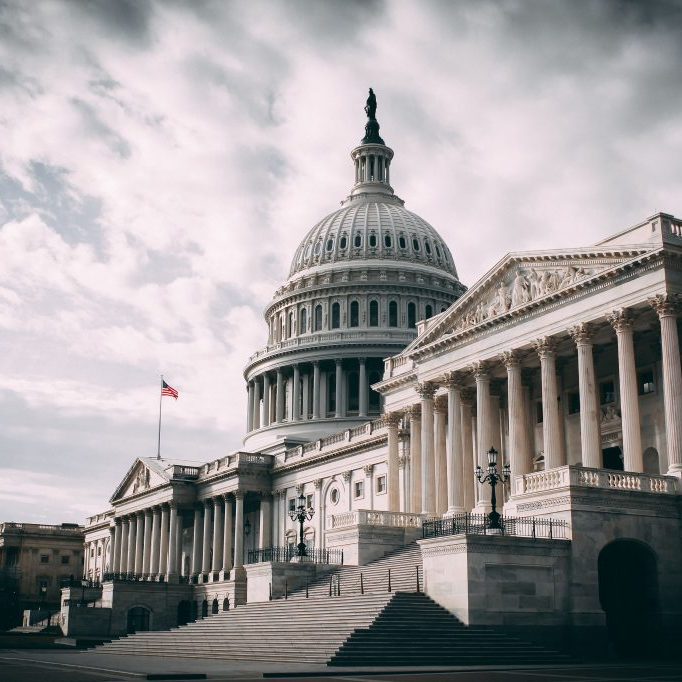The changing landscape of name, image and likeness rules for college athletes has evolved from generating controversy to spawning litigation.
On Febuary 23, the U.S. District Court for the Eastern District of Tennessee entered a preliminary injunction, sought by the Tennessee and Virginia attorneys general, enjoining the NCAA from enforcing its core NIL rules.[1]
The court opined that the states were ultimately likely to succeed on their antitrust claim that the NCAA rules violate the Sherman Act, finding that the rules had a substantial anti-competitive effect supported by an insufficient procompetitive rationale.
But this is just the first major ruling in what may be a long and drawn-out federal antitrust battle. Meanwhile, as bad as the antitrust problem may be for the NCAA, it faces an even more direct legal threat — one that schools may face, too, if they follow the NCAA’s lead.
State NIL Laws
In many jurisdictions, state law requires colleges and universities to allow their student-athletes to have NIL deals — including deals used to recruit them to play for a school.
The NCAA, on the other hand, prohibits NIL recruitment deals and appears to be telling schools to violate state law. But the NCAA’s basis for telling its members to violate state law appears to be — in my opinion — nuts.
State laws don’t require anyone to enter into NIL deals, but many now make it unlawful for schools, conferences or the NCAA to prohibit NIL deals, except under certain circumstances. For example, Virginia law says:
No institution or agent thereof, athletic association, athletic conference, or other organization with authority over intercollegiate athletics shall … [p]rohibit or prevent a student-athlete from earning compensation for the use of his name, image, or likeness, except as otherwise permitted in this section.”[2]
The law goes on to say that certain NIL deals can be prohibited under certain specified circumstances. For example, they can be prohibited if they involve marketing certain things like alcohol, drugs or sex, or if they involve campus resources or uniforms, conflict with a school’s own preexisting NIL contracts, etc.
But nothing in the statute says that a school or the NCAA — or even the school and the NCAA — can get together and ban an NIL deal for another reason not specified under the law.
The recent state laws on NIL differ, but, in general, they follow this common structure: Neither student-athletes nor schools can be punished for NIL deals except for reasons specified by law.
NCAA Rules
The NCAA, though, prohibits NIL deals for lots of other reasons not specified by these state laws. A big one: NIL deals that school boosters use to lure an athlete to come to the school are prohibited by the NCAA, though such deals are allowed by many state laws.
What does a hypothetical Virginia school do with the following scenario? Despite the state’s law that says no institution shall prohibit or prevent an NIL deal except for reasons laid out in the law, the NCAA does prohibit the deal if the deal is used by boosters as a recruiting lure, and says the school must do the same or the NCAA will punish the school.
In a memo last year, the NCAA said “all schools, as part of a voluntary membership, are required to comply” with its rules after the organization was asked what to do about the fact that some state laws appeared to prohibit NCAA enforcement.[3]
This is the sort of thing that gets a lawyer’s attention: The NCAA sounds like it’s telling schools they should violate state law rather than NCAA rules. Surely the NCAA has a good reason for this, right?
Um, maybe? Back in 2019, the NCAA sent a letter to California arguing that its NIL laws were unfair and hinting, obscurely, that it has a legal argument that allows it to trump state law by private agreement among NCAA schools because such laws are “unconstitutional.”[4] The NCAA didn’t spell out its theory, but legal observers expect it was based on the dormant commerce clause.[5]
The NCAA’s History With the Dormant Commerce Clause
The basic idea is that, since the U.S. Constitution gives Congress the power to regulate commerce “among the several States,” states can’t regulate interstate commerce unilaterally. That makes sense, right? But what does that have to do with whether a student-athlete with a thousand-watt smile can ink a toothpaste endorsement deal?
The answer involves the NCAA’s old nemesis, Jerry Tarkanian. Fans of a certain vintage will remember “Tark the Shark” as the outlaw coach of the Runnin’ Rebels basketball team at the University of Nevada, Las Vegas, which played with a fast, aggressive, entertaining and effective style.
You either loved Tarkanian or you hated him, and the NCAA hated him. Tark thought even less of NCAA restrictions than he did of slow basketball, and UNLV got in trouble repeatedly with the NCAA. But the state of Nevada loved Tark, and the state passed special legislation that required the NCAA to give due process to anyone it sanctioned — even Tarkanian.
In NCAA v. Miller, the NCAA got an injunction in the U.S. District Court for the District of Nevada forbidding Nevada from enforcing its law in 1992, and the U.S. Court of Appeals for the Ninth Circuit upheld the injunction in 1993, citing the dormant commerce clause.[6]
Defenders of the NCAA’s effort to regulate NIL suggest that’s basically the ballgame: Any state law effort to regulate NIL will violate the dormant commerce clause, because a federal appellate court struck down a different state law aimed at the NCAA in 1993.
But the Miller decision was never controlling outside the Ninth Circuit. And a lot has happened since 1993. Most importantly, the U.S. Supreme Court has issued important decisions on the dormant commerce clause, and its authority is controlling everywhere in the U.S.
For instance, the Supreme Court ruled in National Pork Producers Council v. Ross last year that the dormant commerce clause did not prohibit California from adopting special rules for the humane treatment of pigs that end up as pork on California tables.[7]
Opponents argued that this would regulate interstate commerce by, effectively, forcing outof- state producers to follow California law if they wanted to sell in the California market. But the court squarely rejected that argument, so Californians can pig out with a clear conscience.
To be clear, the Supreme Court did not overrule the lower court’s Miller decision from 30 years ago — it didn’t even mention it. But there is pretty clear tension between how that one appellate court viewed the dormant commerce clause in 1993 and how the Supreme Court views it today.
The point is not that the NCAA will definitely lose a dormant commerce clause fight over state NIL laws that conflict with the NCAA’s views. The point is that no competent lawyer would say that it would definitely win one.
What makes the NCAA nuts is that it is now advising schools, in writing, to violate state laws — apparently in hopes that the dormant commerce clause might make those laws invalid. But what if the NCAA’s dormant commerce clause argument loses? Schools are caught in the middle not just competitively, but legally.
Schools Caught in the Middle
If a school takes the NCAA’s advice and uses its leverage over an athlete to prevent an NIL deal from occurring, or forces the parties to an NIL deal to break their contract, who will bear the economic loss? Most states have laws that let aggrieved parties sue over tortious interference with other parties’ business.
In some states, like Virginia, there are also state statutes that make it unlawful for two or more parties to conspire to injure a person in business, and they allow the injured party to sue for damages.[8]
Under Virginia’s statute, the conspiracy must have legal malice, meaning it doesn’t have legal justification.[9] Virginia’s law that seems to bar the enforcement of NCAA anti-NIL rules is going to make it hard to argue that an agreement — or more darkly, a conspiracy — among NCAA schools to kill certain NIL deals has the required legal justification.
So, let’s say a Virginia hometown hero wants to play for an in-state school, maybe in part because she thinks a home-state market is going to be much better for her in terms of NIL deals. And let’s say one of the Virginia schools’ booster collectives agrees, and offers her a lucrative NIL package if she’ll come play for a Virginia school.
What do you do if you’re that Virginia college or university? Do you blow up her NIL deal by denying her a spot on the team if she goes through with it? On the one hand, you invite the wrath of Virginia law. On the other, you face the wrath of the NCAA, backed up by an argument about the dormant commerce clause that hasn’t been tested for a long time and looks awfully shaky.
And what should university counsel be thinking about? There is legal risk in telling a recruit that the school will not offer her a scholarship because she has an NIL deal that contravenes NCAA rules but complies with governing state ones.
There’s also little reason to take legal comfort in advising a school to defy state law because of the NCAA rules — whatever the scope of the federal supremacy clause, there’s no NCAA supremacy clause.
State efforts to simply outlaw NCAA NIL restrictions are a more straightforward legal problem for schools than the antitrust issues that currently have center stage, and they raise a more fundamental constitutional issue.
That issue will also have to be resolved before schools and their lawyers can navigate this changing legal environment with confidence.
Patrick O’Donnell is a partner at HWG LLP.
The opinions expressed are those of the author(s) and do not necessarily reflect the views of their employer, its clients, or Portfolio Media Inc., or any of its or their respective affiliates. This article is for general information purposes and is not intended to be and should not be taken as legal advice.
[1] Memorandum Opinion and Order, Tennessee v. NCAA, No. 3:24-cv-00033-DCLC-DCP
(E.D. Tenn. Feb. 23, 2024), ECF No. 47.
[2] VA Code Ann. § 23.1-408.1(B).
[3] NCAA, NIL Update Memo – June 27, 2023, available
at https://www.ncaa.org/sports/2021/2/8/about-taking-action.aspx.
[4] NCAA responds to California Senate Bill 206 (Sept. 11, 2019, 10:08
AM), https://www.ncaa.org/news/2019/9/11/ncaa-responds-to-california-senate-bill-206.
[5] What If the NCAA Litigated State NIL Legislation?, Harv. J. Sports & Ent. L. (Dec. 28,
2020), https://journals.law.harvard.edu/jsel/2020/12/what-if-the-ncaa-litigated-state-nillegislation/.
[6] NCAA v. Miller, 795 F. Supp. 1476 (D. Nev. 1992).
[7] Nat’l Pork Producers Council v. Ross, 598 U.S. 356 (2023).
[8] VA Code Ann. § 18.2-499.
[9] Com. Bus. Sys., Inc. v. BellSouth Servs., Inc., 453 S.E.2d 261 (Va. 1995).
Author:
Patrick O´Donnell
HWG LLP
podonnell@hwglaw.com
+1 202 730 1312
https://hwglaw.com/


